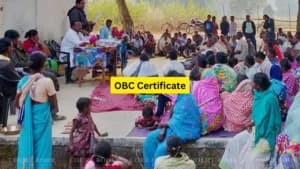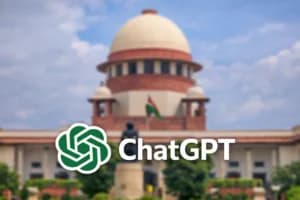In a detailed judgment delivered on October 7, 2025, the Supreme Court of India set aside the Karnataka High Court’s ruling that had upheld an alleged oral gift (Hiba) of agricultural land in Gulbarga. The bench of Justices Ahsanuddin Amanullah and S.V.N. Bhatti ruled that the claim made by the respondent, Syeda Arifa Parveen, was not legally sustainable and that her civil suit was barred by limitation.
Background
The dispute revolves around 24 acres and 28 guntas of agricultural land in Kusnoor village, Gulbarga. The property originally belonged to one Khadijabee, who, according to Parveen, orally gifted 10 acres to her in 1988 and later executed a memorandum of gift the next year.
Following Khadijabee’s death in 1990, her husband Abdul Basit’s name was entered in the land records, and in 1995, he sold the entire land through five registered sale deeds to the defendants-Dharmrao Sharanappa Shabadi and others. Parveen, claiming to be Khadijabee’s only daughter, challenged those sale deeds in 2013, nearly 18 years later, alleging fraud and seeking a declaration of ownership.
While the trial court partly upheld her claim, recognizing her as owner of 18 acres and 21 guntas, the High Court of Karnataka went further-affirming her ownership over the entire 24-acre parcel, including 10 acres allegedly received through Hiba.
Read also:- Jammu & Kashmir High Court Quashes Preventive Detention of Jaffer Hussain Butt Under Public Safety Act
Court’s Observations
The Supreme Court found several flaws in the findings of both lower courts. Justice Bhatti, writing for the bench, remarked that the High Court “exceeded its jurisdiction by modifying the trial court’s decree without a cross-appeal from the plaintiff.” The Court noted that the High Court’s recognition of an oral gift contradicted both law and evidence.
On the question of lineage, the Court held that Parveen failed to prove she was indeed the daughter of Khadijabee and Abdul Basit. The bench emphasized that oral evidence by relatives “cannot be accepted blindly without meeting the triple test of relevancy, admissibility, and credibility.” No documentary proof-such as birth or school records-was ever produced.
Read also:- Karnataka High Court Dismisses 82-Year-Old’s Plea Over Disputed SC/ST Land Transfer Under PTCL Act
Turning to the alleged oral gift, the Court reiterated that under Mohammedan law, delivery of possession is a vital condition for a valid Hiba. “A gift without proof of possession cannot stand. It is an act of benevolence, not a secret transaction,” the bench noted. The Court observed that all land records continued to reflect the defendants’ names since 1995 and that the plaintiff had shown “complete silence for more than two decades.”
Furthermore, the Court ruled that the suit filed in 2013 was time-barred. Citing long gaps between events, it held that Parveen had “constructive notice” of the sale deeds and should have acted earlier. “The conduct for over a period of 23 years cannot be appreciated as that of a passive observer,” the bench said.
Decision
Concluding that both the oral gift and the claim of heirship were unproven, the Supreme Court allowed the appeal filed by Dharmrao Sharanappa Shabadi and others. The bench set aside the High Court’s 2022 judgment and dismissed Parveen’s 2013 civil suit in its entirety.
“There was neither proof of possession nor timely assertion of rights,” the Court held, adding that the registered sale deeds of 1995 stood valid. With this, a protracted land battle spanning over three decades finally came to an end.
Case: Dharmrao Sharanappa Shabadi & Others v. Syeda Arifa Parveen
Case Type: Civil Appeal (arising from Karnataka High Court judgment dated July 6, 2022)
Citation: 2025 INSC 1187
Date of Judgment: October 7, 2025















